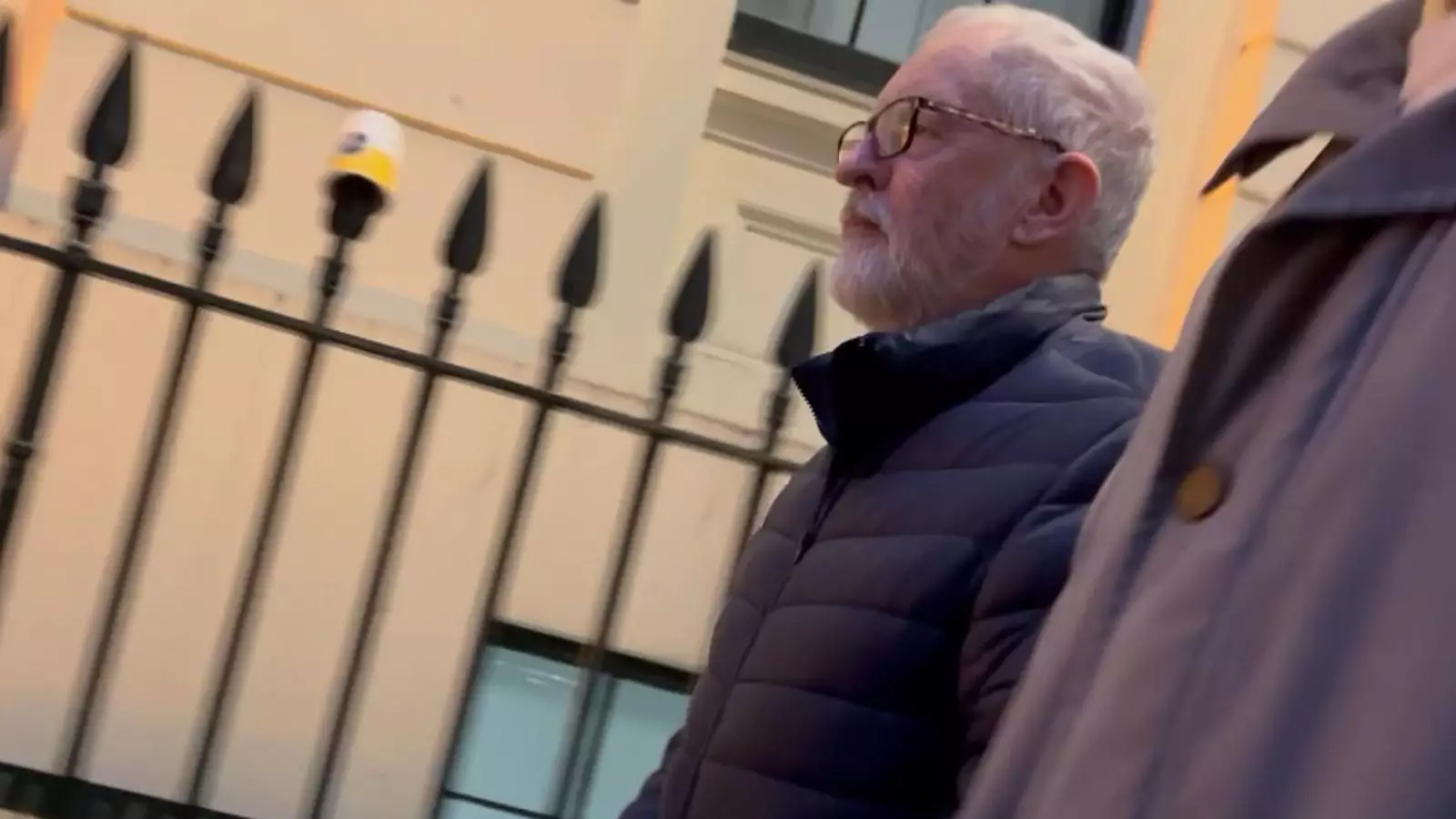The landscape of political activism is often fraught with tension, particularly when deeply entrenched global issues come to the fore. The pro-Palestinian rally in central London over the weekend, which has resulted in the voluntary police interviews of key political figures such as Jeremy Corbyn and John McDonnell, serves as a poignant example of how such events can escalate into legal and political controversies. As former prominent leaders of the Labour Party, both men find themselves at the center of an ongoing debate about the nature of protests, police conduct, and the rights to assemble in the face of opposing narratives.
Organized by the Palestine Solidarity Campaign (PSC), the gathering was intended to express solidarity with Palestine during a delicate period of ceasefire between Israel and Hamas. The protest called for raising awareness around the humanitarian crisis in Gaza and honoring victims of conflict. However, the Metropolitan Police noted that conditions placed on the protest were allegedly violated, leading to charges against multiple individuals, including Corbyn’s brother, Piers.
The PSC has vehemently disagreed with the police’s portrayal of the events. They claim that their planned demonstration was a peaceful, static gathering, designed to ensure compliance with police guidelines while still conveying their message. This clash between the intentions of the protestors and the police’s interpretation underscores a significant divide concerning public demonstrations, free speech, and the parameters of lawful assembly.
The decision of Jeremy Corbyn, now an independent MP, and John McDonnell to voluntarily agree to police interviews highlights their commitment to transparency in the wake of the charges against others involved. Their choice to approach law enforcement directly rather than evade scrutiny reflects a tactic meant to protect their reputations amid rising scrutiny and potential ramifications for their public service careers.
As public figures who navigate the complex intersection between activism and politics, both leaders are compelled to address allegations regarding their actions during the protest. Their perspectives provide insight into the intentions behind their attendance: to commemorate the lives lost in Gaza by laying flowers at the site.
The Metropolitan Police’s declaration that there was a “deliberate effort” to breach the rally conditions, which included prohibiting substantial crowd mobility, places them in a contentious position. Critics of the police’s approach argue these tactics amount to a clampdown on legitimate protest activities. The PSC’s assertion of “heavy-handed tactics” may lay the groundwork for a larger discourse around police authority and the thresholds of peaceful assembly.
The accusations of a misleading narrative following the event represent a growing concern among civil liberties advocates that could catalyze discussions about police accountability in managing public events. The interpretations of what transpired create a battleground not merely for individuals but for the broader societal norms regarding civil rights during protests.
As political narratives evolve, the outcomes of this protest—and the ensuing legal implications—may reverberate through the political sphere for both Corbyn and McDonnell. Their futures in politics, especially amid controversies relating to antisemitism, provide a backdrop for potential shifts within the Labour Party and the wider political landscape in the UK.
Corbyn’s transition from Labour leader to independent MP is telling of the current trend within politics—individuals grappling with their identities amidst shifting allegiances and the fallout of public perception. As substantive dialogues around public order and the rights of protestors emerge, the ramifications of the weekend’s events will likely inspire future activism, shape political discourse, and inform discussions surrounding human rights advocacy in complicated geopolitical contexts.
The implications of such events will continue to play out against a backdrop of evolving social movements, reminding us that the act of protest remains a vital—a sometimes contentious—expression of political dissent.

